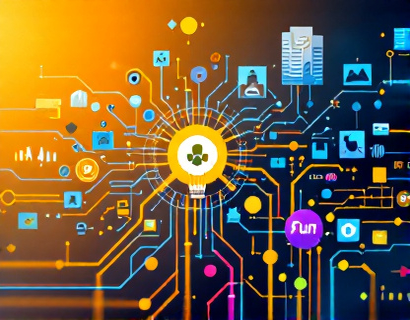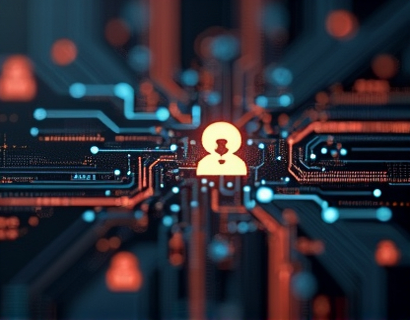Transforming Education with AI-Powered Chatbots: A Comprehensive Guide for Students, Families, and Educators
The integration of artificial intelligence in educational settings has opened new avenues for learning, providing tailored insights and support to students, families, and educators. Among these innovations, AI-powered educational chatbots stand out as a transformative tool, offering specialized knowledge and industry insights in a safe and interactive manner. This article delves into the capabilities and benefits of these chatbots, focusing on how they can enhance the educational experience for all users.
Understanding AI-Powered Educational Chatbots
AI-powered educational chatbots are sophisticated software applications designed to simulate conversation through natural language processing and machine learning algorithms. These chatbots are programmed to understand and respond to user queries with relevant and accurate information, adapting to the user's level of knowledge and context. In the educational sector, these chatbots serve as virtual assistants that can provide immediate feedback, answer complex questions, and guide users through various learning materials.
Specialized Insights for Students
For students, AI chatbots offer a personalized learning experience. These chatbots can cater to individual learning styles and paces, providing content that is both engaging and educational. Students can interact with the chatbot to gain deeper insights into subjects they are studying, receive explanations of complex concepts, and get tips for effective learning strategies. The chatbot's ability to provide real-time assistance means that students can clarify doubts instantly, enhancing their understanding and retention of the material.
Moreover, these chatbots can offer personalized recommendations based on the student's performance and interests. For instance, if a student is struggling with a particular topic, the chatbot can suggest additional resources, such as videos, articles, or interactive exercises, to help them grasp the concept better. This personalized approach not only boosts academic performance but also fosters a love for learning.
Support for Families
Families play a crucial role in a student's educational journey, and AI chatbots can be invaluable allies. Parents and guardians can use these chatbots to stay informed about their child's progress, receive updates on upcoming assignments, and get tips on how to support their child's learning at home. The chatbot can provide insights into best practices for homework help, study habits, and time management, empowering parents to be more effective in their support roles.
Additionally, AI chatbots can facilitate communication between parents and educators. By serving as a bridge, these chatbots can help parents ask questions about their child's education, receive answers from knowledgeable sources, and even schedule virtual meetings with teachers. This enhanced communication ensures that families are well-informed and actively involved in their child's educational process.
Resources for Educators
Educators are another key group that can benefit significantly from AI-powered educational chatbots. These chatbots can assist teachers in various ways, from lesson planning to student assessment. By providing access to a vast repository of educational resources, including lesson plans, teaching strategies, and interactive activities, chatbots can help educators design more effective and engaging lessons.
Moreover, chatbots can aid in student assessment by offering tools to create and grade assignments, track student progress, and identify areas where students may need additional support. This data-driven approach allows educators to tailor their teaching methods to better meet the needs of their students, ultimately improving educational outcomes.
Ensuring Content Verification and Safety
One of the most significant advantages of AI-powered educational chatbots is their commitment to content verification and safety. These chatbots are designed to provide accurate and reliable information, sourced from reputable educational databases and academic journals. This ensures that students and educators receive verified content, reducing the risk of misinformation.
For younger users, chatbots can be configured to offer a child-friendly version of the platform, filtering out inappropriate content and ensuring a safe learning environment. Parental controls and privacy settings can be implemented to further enhance the safety and security of the platform. This focus on safety makes these chatbots an ideal tool for educational institutions looking to integrate technology without compromising on student well-being.
Interactive Learning Experiences
AI chatbots can transform traditional learning methods into interactive and engaging experiences. Through natural language interactions, students can explore topics in a conversational manner, asking questions and receiving immediate responses. This interactive approach not only makes learning more enjoyable but also helps in better comprehension and retention of information.
For example, a student studying history can engage in a conversation about a specific era, asking the chatbot to explain key events, figures, and their impacts. The chatbot can provide detailed descriptions, anecdotes, and even connect related topics to give a holistic view. This dynamic interaction can spark curiosity and motivate students to delve deeper into the subject matter.
Collaborative Learning and Community Building
AI chatbots can also foster a sense of community among students, educators, and families. By creating forums and discussion groups within the chatbot platform, users can collaborate on projects, share resources, and discuss topics of interest. This collaborative environment encourages peer learning and support, as students can learn from each other's perspectives and experiences.
Educators can use these community features to facilitate group projects, assign collaborative tasks, and monitor student interactions. This not only enhances the learning experience but also helps in building a supportive and inclusive educational community.
Adaptability and Continuous Improvement
The beauty of AI-powered educational chatbots lies in their adaptability and continuous improvement capabilities. These chatbots can learn from user interactions, refining their responses and improving their accuracy over time. This means that the more users engage with the chatbot, the better it becomes at providing relevant and helpful information.
Educational institutions can also customize the chatbot to align with their specific curriculum and educational goals. By integrating the chatbot with existing learning management systems, schools can create a seamless and cohesive educational experience. This flexibility ensures that the chatbot remains a valuable tool, evolving alongside the needs of students, families, and educators.
Conclusion
AI-powered educational chatbots represent a significant advancement in the way we approach learning and education. By providing specialized insights, ensuring content verification, and creating safe and interactive environments, these chatbots offer a multitude of benefits for students, families, and educators. As technology continues to evolve, the potential for AI in education is vast, promising a future where learning is more accessible, engaging, and effective.











































